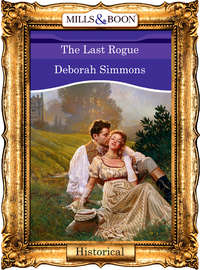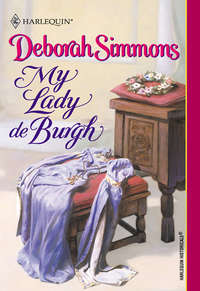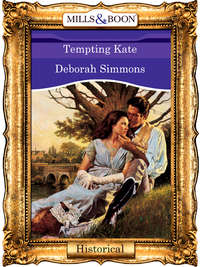
Полная версия
Glory And The Rake
The sound of a door slamming made Glory nearly drop the glass in her hand; for a moment she feared the duke was striding through the Pump Room, intent upon her. She turned in alarm when she heard footsteps approaching, even though she had told the workmen not to admit anyone.
But who would dare deny a duke?
Caught unprepared, Glory had no weapon except warm mineral water, but she faced the intruder with a hammering heart. She lifted her arm, only to shudder with relief when her brother burst into the room.
‘Thad!’ Glory admonished, lowering the vessel in her grip.
‘What?’ he asked. A moan from Phillida made him glance behind Glory, a questioning look on his face. ‘What?’ he repeated, ignoring his sister’s warning grimace. ‘Did something happen?’
‘Yes, something happened,’ Phillida said, lifting her head. ‘Your sister made a spectacle of herself in the middle of the street, with a duke!’ Phillida fell back, as though too overcome to continue, but she was bound to be disappointed by her nephew’s reaction.
Instead of appearing shocked, Thad frowned in apparent disappointment. ‘You saw Westfield? You might have waited for me,’ he complained, throwing himself into a medallion-backed chair.
‘It was not a social visit,’ Glory said, glaring at her brother. ‘He was with Dr Tibold, who approached me from behind and began shouting at me.’ She did not add that she had swung at the physician in her own defence. Since Phillida had not mentioned it, Glory hoped her aunt had not seen the blow.
‘The bounder! He needs a good thrashing,’ Thad said, and Glory was comforted by his outrage. She had been right to share her concerns with him, for he finally was taking an interest. Or so she thought until he spoke again.
‘But Westfield? I don’t believe it. Why would he even be seen with such a character?’
‘Perhaps they are related,’ Glory suggested, though she did not need evidence of the duke’s true nature. He had demonstrated it last evening, when he had put his hands upon her …
But Thad shook his head. ‘That doesn’t seem likely, or Tibold would have been bragging of his connections. And why didn’t I see Westfield? I suppose that I wasn’t paying much attention after … Well, now that I know he’s out and about, I’ll keep an eye out for him.’
‘And why would you do that?’ Glory asked, warily. She did not want her brother confronting the duke, nor did she want her brother to seek the man’s company.
‘Perhaps Thad can offer his Grace some kind of explanation for his sister’s outlandish behaviour,’ Phillida said, interrupting Glory’s thoughts. ‘I cannot show my face in society knowing that we will be cut by a famous nobleman. The gossip! The rumours! If only you could make amends, dear boy.’ Rousing herself on to an elbow, Phillida sent her nephew a beseeching look.
Glory found the thought of making amends with Westfield disconcerting, but she did not care to admit as much to her aunt. ‘It is not as though you move in the same circles,’ she said.
‘But aren’t you always claiming that the spas are a perfect place to mingle with all manner of people?’ Phillida demanded. ‘Where else might we be included in such company?’
Where else indeed? Glory thought, her own words coming back to haunt her. ‘But why should we aspire to such an acquaintance? Westfield has allied himself with our enemy and proven himself unworthy of our regard.’
At Glory’s words, her aunt dropped back upon the chaise, moaning again, seemingly unable to respond.
Ignoring the dramatics, Glory turned towards Thad. ‘How did you find the work site?’ she asked, eager to change the subject.
‘Oh,’ Thad said, looking down at the tips of his boots. ‘I gave them a good talking to, and they promised to pick up the pace, as they well should.’
Although his words were reassuring, his demeanour was not and Glory bit back a sigh. More likely the men hadn’t paid any more heed to Thad than they had to her, but she was grateful for his efforts.
‘Thank you, Thad,’ she said, trying to ignore the sinking feeling in her chest. Before new buildings could even be considered, the remains of the old needed to be torn down and cleared away. As she had many times before, Glory wondered what would convince men to avoid doing the job they were being paid to do, even at the possible forfeiture of their wages. But this time, an answer came to her.
Westfield.
Chapter Three
Trapped by the blathering physician, Oberon stood watching Miss Sutton retreat to the Pump Room, her Pump Room, which made last evening’s story more believable. But there were still several things that didn’t quite fit. The young woman seemed too well bred to be in trade and too clever to be involved with a hopeless venture like Queen’s Well. Even more jarring was her array of weapons and her inclination to use them.
Her behaviour was odd, to say the least. Having disdained his help, she had raced towards the Pump Room as though fleeing his company, and it was that, most of all, that raised Oberon’s suspicions. She had dragged her aunt down the road, drawing the stares of the villagers in a public display that would have her ostracised in London. Never had a female been so eager to escape him. But why? Did she have something to hide? And, if so, what made her determined to hide it from him?
Oberon’s musings were interrupted by a stream of gibberish from the man at his side, which might better explain Miss Sutton’s hasty exit. Having discovered Oberon’s identity, the volatile physician had turned the full force of his flattery upon Oberon. No doubt he hoped for a fat purse from a noble patron, but finally his words trailed off as he realised where Oberon’s gaze lingered.
‘As you have seen for yourself, your Grace,’ the man said, his earlier tone of condemnation returning, ‘she’s a bold piece, a menace to society. I’m sure everyone in our little community would be most grateful if you could use your influence to liberate our waters.’
Oberon had yet to determine if Miss Sutton was a menace, and he suppressed a startling frisson of interest at the prospect of finding out. However, she was hardly the low female Tibold made her out to be, and Oberon had no intention of letting the man abuse her. He flexed his fingers in an unconscious gesture, then turned to face the physician, his expression impassive.
‘You will stop maligning the young woman; should I hear that you have approached within ten feet of her, I shall have you brought up on charges.’ With a nod of dismissal, Oberon left the doctor sputtering in his wake and resumed his walk.
Again, he watched for anything out of the ordinary, but for the first time in years he was distracted, his thoughts unaccountably returning to Miss Sutton. He was even tempted to turn around and make sure Tibold did not follow her to the Pump Room.
Annoyed, Oberon continued on his way, strolling through a few of the shops and stopping for refreshment at a quiet tavern. Although such places were the best sources of information, the occupants were often slow to warm up to newcomers, and Oberon adopted a casual mien to keep from appearing too curious.
He asked only the most general of questions about the village and its environs, as any visitor might, resisting the urge to probe too deeply into the Suttons. However, he soon dis covered that their arrival was the only significant event to have oc curred recently, at least according to those to be found in the Queen’s Arms.
Opinions about the Suttons themselves were less freely offered. One man praised the family for their efforts and the promise of work to be had in the future. Another grumbled about drawing the kind of sickly and infirm patrons who spent little coin and infected others with their diseases. The rest of the tavern’s occupants appeared to be reserving judgement or were too tight-lipped to comment, although other, more dubious reasons, for their silence were possible.
Oberon kept his own remarks neutral, for he knew that every resident of Philtwell would soon learn of these conversations. There was no hiding the arrival of a duke and duchess, especially when his mother took such an interest in the village. And Oberon never made any secret of his identity. It was part and parcel of a reputation that was well known and carefully crafted.
The Duke of Westfield was a man with a taste for the finer things and fascinating company, a pursuer of pleasure rather than politics, though he took nothing to extremes. An intelligent conversationalist, gracious, but not too friendly, he was the perfect guest, as well as playing host to his own entertainments, where an eclectic assortment gathered. And if the crew in the tavern were not his usual companions, he did his best to appear pleasant, yet aloof enough to avoid undue scrutiny.
By the time he left, Oberon knew the names of Philtwell’s most prominent citizens, the sad state of its economy and some common gossip about the residents. Having stayed longer than he intended, when he strolled away from the Queen’s Arms, Oberon saw that the gardener had left the grounds of the Pump Room, meaning that he would learn no more about the owners today, unless …
Seized by a sudden urge to see if Miss Sutton was still in the building, Oberon firmly quelled the desire, yet he crossed the road in order to take the quicker path behind the building, under the trees. But no slender figure stepped out of the shadows to fix a pistol upon him, and the door to the Pump Room was firmly shut.
Oberon shook his head at his own folly, for he knew better than to court trouble. The last thing he needed was to do something reckless that endangered all that he had worked for these past years, as well as the work—and even the lives—of others. At the thought, Oberon considered returning to London, far from the intriguing young woman. But that would mean turning his back on whatever might be going on here, as well as leaving his mother behind. And he had no good reason to do either.
No matter who or what she was, Miss Sutton could hardly get the better of him. Oberon knew how to keep his head, play a part, and, most of all, maintain control.
Gossip travels fast in close environs, and Philtwell was no exception. Oberon had not yet returned to Sutton House when news reached his mother of the contretemps in front of the Pump Room. It came in through the kitchens first, a delivery boy relating the incident to the enthralled staff, and from there to the upper servants, including Randolph’s valet.
While he intended to relay this information at the earliest opportunity, a couple of callers arrived to pay their respects to the visiting dowager. So it was through a Mrs Malemeyne that Letitia received the first report that her son had been seen in the village with the very young woman she had hoped he might meet.
Her initial pleasure was dimmed by the description of the encounter, which varied according to the messenger. Mrs Malemeyne, eager to ingratiate herself with the dowager, claimed that the duke was a hero for coming to the aid of a fainting woman, while the persons he so selflessly served were ingrates who fled the scene with undue haste. Leaning close, Mrs Malemeyne confided that she thought little enough of the Suttons, for the girl was too bold, by half, and the aunt seemed in ill health, for all the swooning that she did.
Mrs Levet was more circumspect. There appeared to be shouting, she said, though she was sure his Grace wasn’t the one doing it. And there were reports of a blow, though she was uncertain who struck whom. Alarmed at this version of events, the dowager turned to Mrs Goodhew for the truth, an elderly woman who had once been the arbiter of the small society that made up Philtwell.
The dowager found her old friend still residing in a small manor house that had long been the home of the squires that served the area. Having outlived most of her contemporaries, Mrs Goodhew welcomed her visitor eagerly, holding court in a chair near the fire, despite the warmth of the day.
‘It’s a pleasure to see you, Letty,’ she said, her voice still strong.
‘And you, Maisie,’ Letitia said. ‘So much has changed since I last was here that it is a comfort to find you and Randolph carrying on.’
Maisie snorted. ‘Is that what you call it?’ Then she studied Letitia through narrowed eyes. ‘And Randolph? How is he faring?’
‘Oh, much better,’ Letitia said, meeting the older woman’s questioning gaze head on.
Maisie snorted again, as if she was having none of it, but she did not pursue the subject. ‘I hear you brought your son along.’
‘Yes,’ Letitia said. ‘I wanted him to see the spa where his father and I met.’
Maisie sighed and shook her head. ‘It’s not the same, Letty. It hasn’t been since the fire.’
‘Yes, that’s what Randolph said.’
Maisie shook her head again. ‘It was a horrible night. Frank and I were in the Assembly Rooms when it happened, all so quickly that we hadn’t the sense to realise … I heard something, like a cannon ball or some sort of explosion, but I’m sure we all would have ignored it, if Sutton hadn’t made us get out. Our men did the best they could, but the inn was already engulfed and it was spreading. Sutton tried to go in.’
Letitia made a sound of dismay, and Maisie frowned. ‘I’m surprised more people weren’t killed.’ She drew a deep breath. ‘But that was the end, Letty. Sutton’s wife didn’t have the heart for it, probably not the money, either, and something like that irrevocably damages a place’s reputation.’
‘Yet it might recover,’ Letitia said. ‘I understand the Sutton children are back.’
‘Yes, but it might be too late. The village lost its heart. Damn fools haven’t been very welcoming. They blame the family for everything that’s happened since.’
‘Yes, I heard of an odd episode today,’ Letitia said carefully.
Maisie’s expression grew sly. ‘Involving your son.’
Letitia nodded, relieved to hear her old friend was still awake on every suit. ‘I wasn’t certain whether you kept yourself as informed as in the old days.’
‘I do the best I can, aided by a few of my younger friends and my faithful servants, of course.’
Letitia leaned forwards. ‘I would be curious to hear your version of events, for a certain Mrs Malemeyne painted Oberon in quite a heroic light, a pose that seems unlikely.’
Maisie snorted. ‘Malemeyne. A trumped-up clerk’s wife who tries to pass herself off as gentry.’ She paused. ‘I don’t know your son, but I hear he was with one of the shadier characters who’ve invaded Philtwell in the past few years. The fellow claims to be a doctor, but who knows? Nosed around the well as though he wanted to take it over, but he has no legal right to anything.’
She paused. ‘The Suttons still own all but the big house, so Randolph wrote to them, and it wasn’t long before they arrived, the son, the daughter and an aunt. That didn’t sit well with some people, including this doctor. From what I hear, he’s been bullying the girl, who appears to be the one arranging the re-opening.’
‘Ah …’ Letitia sat back. She hesitated to say too much, for age obviously had not dulled Maisie’s wits.
‘My sources tell me that the doctor was shouting at the girl. Outrageous, if you ask me. Why, in my day, he’d have been horsewhipped. But people mind their own business now,’ she said, shaking her head. ‘I suspect the doctor latched on to your son as he would any well-dressed gentleman, and, not knowing who’s who in our little community, the duke certainly can be forgiven for not stepping in.’
Letitia frowned at the poor excuse for her son’s behaviour. ‘Although I wouldn’t paint him as heroic, I can’t imagine he would stand aside while a young lady is abused.’
‘Perhaps he did not, for no one was close enough to eavesdrop. And obviously he aided the aunt, for, by all accounts, he caught her when she fainted.’
‘But then Miss Sutton dragged her away.’
‘Perhaps, but it is hardly a matter of consequence,’ Maisie said.
Maisie was right. In the usual course of things, the episode would quickly be forgotten, but Letitia had pinned her hopes for the future upon a felicitous meeting between her son and Miss Sutton and she saw her plans going sadly awry before they had even begun. She did not easily surrender, however, and she set her mouth in a determined line, unwilling to give up on the first decent prospect she’d had in years.
‘Letty?’ Maisie said, sending her a sharp glance.
‘You are correct, as usual, Maisie dear, but I do so want my son to enjoy Philtwell as I have,’ Maisie said, without going into details. ‘Perhaps I should try to set everyone to rights, to avoid any misunderstandings.’
Such a reaction on her part would hardly be suspect, Letitia decided, and from what she had just heard, it was clearly time for her to step in. Leery of being perceived as matchmaking, she and Randolph had hoped to let Mother Nature take its course, but that didn’t seem possible now.
Unfortunately, as everyone knew, the old girl was not very reliable.
Glory lagged behind her aunt and her brother, uncharacteristically dragging her steps, for she did not share their excitement over the evening ahead. Lifting her bent head, Glory forced herself to look at the building that was their destination: Sutton House, the home of her ancestors.
By rights they should be living there, but they were comfortable enough in the smaller cottage that had remained in the family. The larger residence, set back among the sycamores, seemed rather gloomy to Glory when they had visited on previous occasions at the invitation of the current owner.
Mr Pettit seemed to be a staunch supporter of Queen’s Well, but now Glory wondered about him, considering his guests. The duke and his mother must have made themselves at home, despite Mr Pettit’s illness, because it was from the dowager that the invitation had come.
Normally, Glory would have been eager to gain noble approval of her plans, for a nod from a duchess would certainly be a boon to any enterprise. But her dealings with Westfield made her leery of a conversation with either of them, especially if they shared Dr Tibold’s views upon the waters.
Glory might even have refused to go, if given a choice, but it was made clear that she had none. Phillida had practically swooned, with joy this time, when she received the missive. Preening over the correspondence, Glory’s aunt had spent the rest of the day determining what to wear and planning detailed reports to all her London acquaintances of her new ‘friendship’ with the noblewoman.
Thad, too, had been eager for the outing, and since little in Philtwell interested him, Glory had kept her objections to herself, though she was determined to be on her guard. The others might be blinded by titles, but Glory knew that, beneath Westfield’s elegant exterior, there was something dangerous that went beyond the power of wealth and rank.
Westfield handled himself too well. And he had handled her too well, Glory thought, flushing at the recollection. What other man of his position would disarm a pistol-wielding opponent, and so easily? Glory realised that she had not been a formidable foe, but, then, what gentleman would act as he had towards a woman? Westfield had no compunction against pulling her to him, twisting her arm, whispering in her ear …
Glory drew in a sharp breath. She liked to think of herself as capable, for she had held her family together since the untimely death of her father, raising her brother and making the decisions that Phillida was unwilling or unable to bother about. She managed the finances, ran the household and had chosen to revive Queen’s Well, despite opposition. There was little that unnerved her.
But Westfield made her uneasy in ways that she couldn’t even define. He was a threat, if nothing else, to her peace of mind, so Glory looked about warily as they entered Sutton House. But when the butler showed them into the parlour, the room was empty except for a regal-looking woman who could be none other than the dowager duchess. Approaching them with a smile, she apologised for the lack of proper introduction since Mr Pettit was indisposed.
It was not what Glory had been expecting. She had imagined a female version of Westfield—dark, aloof and threatening—and this woman seemed to be none of those things. Although Glory rarely chanced upon members of the ton, the social elite, she knew that often the women were spoiled, shrill and demanding, with contempt for anyone beneath them.
Yet the dowager graciously greeted each of the Suttons in turn, lastly settling her attention upon Glory. Although her eyes were blue, they held the same sharp intelligence as her son’s, and she cocked her head slightly, as though to examine Glory in earnest.
‘Ah, Miss Sutton,’ she said. ‘So you are the one.’
‘The one?’ Glory repeated, uncertain of the woman’s mean ing.
‘Who would re-open Queen’s Well.’
‘Yes,’ Glory said, lifting her chin. Having failed in their earlier intimidations, perhaps Dr Tibold and Westfield hoped to use the gentle arts of persuasion in the form of this woman. But Glory had no intention of giving in—to anyone. The more she was pushed, the more she held fast, determined to make her family’s heritage a success.
Expecting her show of stubbornness to draw the duchess’s displeasure, Glory was surprised at the woman’s slow smile. ‘Wonderful, just wonderful,’ the older woman murmured. Nodding, as if in approval, she left Glory even more puzzled when she turned towards Phillida, who was asking about Mr Pettit.
‘He is doing better, though he won’t be able to join us tonight,’ the duchess said. As she chatted with Phillida, Glory took the opportunity to study her more closely. The duchess did not much resemble her son, for she was not tall and lean, but there was something about the way she held herself that reminded Glory of the duke. And they shared the same bone structure, which made the dowager a handsome woman, if not quite as breathtaking as her son.
While Glory watched, a light came into the older woman’s eyes that made her look far younger. Turning to follow her gaze, Glory was brought up short by the sight of a figure in the shadows at the end of the room. Someone had entered silently and unannounced, but there was no mistaking the tall form. It was Westfield, and Glory automatically took a step back.
Surely he would be on his best behaviour in front of his mother, Glory thought, yet she still felt a frisson of unease. Thus far, her dealings with the man had been unpredictable, untenable, unsavoury …
‘Ah, there you are. Come join us,’ the duchess said, and Glory’s heart pounded far more than was reasonable as he stepped into the light. He moved with the quiet grace of a cat, and not an ordinary pet, but one like those found in menageries … one that was stalking its prey.
Glory held her ground, but glanced away to still her racing pulse. She had learned through experiences with some of the villagers and the workmen not to let her weaknesses show, for surely her opponent, be it a vendor or an enemy, would take advantage. Unfortunately, the thought of Westfield taking advantage of her only fuelled her agitation. All too well, she recalled the feel of him pressed against her back, the warmth of his breath upon her ear …
‘Miss Sutton.’
The sound of the deep voice made her jump, and Glory realised he was speaking to her. Lifting her chin, she forced herself to look into his handsome face. His dark eyes revealed little, and yet Glory suspected that there was nothing that escaped him, including the fact that she was hanging back, as far from him as possible. No doubt that’s why he was making a point of offering her his arm to take her into supper.
Glory was tempted to refuse, but she did not want him to see how easily he had unnerved her. With a curt nod, she assented, but as he led her into the dining hall, she had never been so aware of another person. Her skin tingled where her fingers rested against his sleeve, and she nearly pulled away. When she took her seat, glad to be free of his touch at last, Glory felt his fingers brush against her back.








